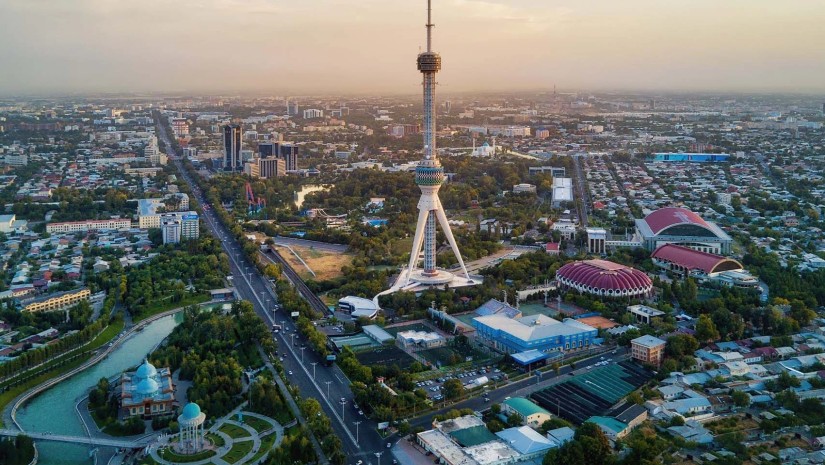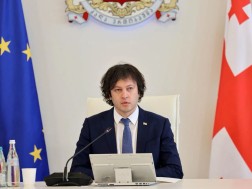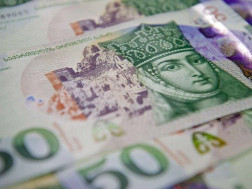Central Asia consists of five primary countries: Kazakhstan, Kyrgyzstan, Tajikistan, Turkmenistan, and Uzbekistan. Kazakhstan is the richest and most developed while Uzbekistan offers opportunities to catch up with Kazakhstan and other more developed countries
Investing in Uzbekistan’s stock market offers a unique chance to engage with an emerging economy that is actively reforming and opening up to global capital. As the most populous country in Central Asia, Uzbekistan is drawing attention from investors with its sustained economic growth, resource wealth, and government-led initiatives to modernize and diversify its financial markets.
Kazakhstan President Nursultan Nazarbayev stated happiness and prosperity for the people is to have several oil pipelines while Uzbekistan’s Islam Karimov stated “ "There is no future without a strong economy. We need an independent economy that is based on the realities and conditions of our country."
It was Mr. Karimov’s successor and current President Shavkat Mirziyoyev who is preparing the most populous central Asian nation for Uzbekistan - 2030” strategy. Global investors should take notice and might want to consider some investment exposure as Uzbekistan introduced a new capital markets law as part of its broader economic reform strategy 2030.
Uzbekistan’s investment landscape is evolving, presenting opportunities that align well with global investors looking to tap into frontier and emerging markets. Uzbekistan's ambitious "2030 Strategy" and recent capital market reforms that could enhance its appeal for global investors and private clients.
1. Economic Growth and Reforms
Uzbekistan has maintained an impressive 6% GDP growth rate over the last decade, with growth primarily fuelled by reform-driven economic shifts and a modernizing vision for the country's future. The Uzbek government's "2030 Strategy" highlights a roadmap aimed at reducing state control in the economy, increasing foreign direct investment (FDI), and introducing policies like the capital markets law to strengthen investor protections.
2. Frontier Market Potential
Classified as a frontier market, Uzbekistan offers a unique opportunity to investors with potential for high returns from lower valuations typical of earlier-stage markets. The ongoing privatization of state-owned companies and an uptick in IPOs are key moves to expand and diversify the Tashkent Stock Exchange (RSE Toshkent), creating more access for both local and foreign investors.
3. Resource Wealth
Uzbekistan is rich in natural resources like natural gas, gold, copper, and uranium, providing a strong foundation for economic growth. With rising global demand, Uzbek firms in resource-intensive sectors stand to benefit, presenting valuable prospects for investors targeting commodity-based growth.
4. Incentives and Financial Innovation
To attract capital, Uzbekistan has rolled out incentives like tax exemptions on dividends and interest income, appealing to both local and foreign investors. The implementation of "regulatory sandboxes" promotes innovation in fintech, making the Uzbek market increasingly attractive to investors interested in early-stage financial services.
5. Strategic Location
Positioned strategically between Europe and Asia, Uzbekistan’s location supports its role as a key transit and trade hub within Central Asia. Its involvement in the Belt and Road Initiative amplifies its connectivity, positioning the country favourably for increased regional trade and investment.
6. Tashkent stock exchange
If you check on Bloomberg you hardly find much or any Uzbekistan 🇺🇿 stock market information yet but for the smart and foresighted global investor this might be a good thing and a sign of more stock market and capital markets returns to follow. Uzbekistan is considered a frontier market, with the potential to evolve into a more developed emerging market over time. As the country increases its efforts to privatize state-owned enterprises and encourages more IPOs, the stock market is likely to see more investment opportunities. This "early-stage" nature of the market can allow investors to buy into companies at lower valuations, with the potential for significant long-term gains.
The Tashkent Stock Exchange (RSE "Toshkent") in Uzbekistan has around 103 companies listed, with 157 securities in total, including stocks and bonds. The Tashkent exchange primarily consists of stock issuances, with only a few companies offering bonds. Additionally, the exchange includes an off-list trading platform where shares of 117 issuers are traded. This marks a significant increase in the exchange's accessibility and transaction volume over recent years as Uzbekistan continues its economic reforms and draws increased interest from both local and foreign investors
Uzbekistan's stock market, primarily represented by the Tashkent Stock Exchange, ranks modestly in global terms, largely due to its limited market capitalization. As of the latest data, Uzbekistan's market capitalization stood at about $5.19 billion, which is relatively small compared to larger economies where averages can exceed $1 trillion. This low capitalization contributes to its underdevelopment, with challenges such as limited institutional investor participation, high brokerage fees, and limited trading infrastructure making it less attractive on the global stage.
Challenges and Considerations
While Uzbekistan’s market potential is promising, it is not without challenges. Political and regulatory uncertainties, limited trading infrastructure, and low liquidity are factors investors need to consider. Further, without connectivity to international platforms like Euroclear, Uzbekistan remains somewhat isolated in the global financial system, which could dampen immediate cross-border trading access.
For investors with a long-term outlook and an appetite for moderate risk, Uzbekistan’s frontier market status offers a chance to participate early in a high-growth, reform-driven economy. As the market matures and reforms continue to take hold, Uzbekistan could become a compelling addition to an emerging market or global investment portfolio.
Rainer Michael Preiss, Partner & Portfolio Strategist at Das Family Office in Singapore























